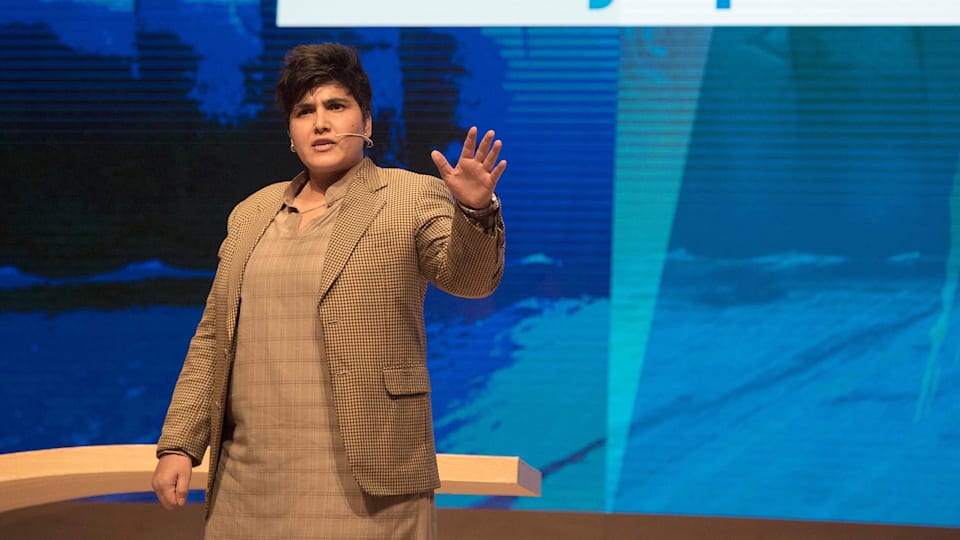One woman’s fight for the right to play sport
The Olympic Games and sport globally offer an incredible platform for advancing gender equality and challenging ‘norms’ to prompt social change and conversations. In this vein, the International Olympic Committee (IOC), a partner of UN Women, is supporting #WomensDay by shining a spotlight on inspirational #WomenInSport.

After overcoming hostility and discrimination to become one of Pakistan’s leading female squash players, we caught up with IOC Women in Sport Commission member Maria Toorpakai Wazir, who reflects on her extraordinary story and her experiences of working with the IOC to promote female empowerment and advocate women’s rights in sport.
“When I was young and living in Pakistan, I used to see boys playing outside. They would throw dodgeballs and fly kites – they had unlimited space to play and have fun. But for young girls, it was different. We were confined to four walls, taking care of our families.
The area I come from is the headquarters of the Taliban. Women are not allowed to get an education, or even leave their houses. Sport is simply out of the question. But I was lucky. I had a father who was supportive and who always encouraged me. He said I was unique and different. When I was 12, instead of telling me I should stop going outside and that it was going to be very difficult for me in what is a very patriarchal society, he introduced me to sport to give me the courage to fight back.
The first sport I was introduced to was weightlifting. I competed in the All-Pakistan Under-16 Boys’ Championship under the name Genghis Khan, and I won. Although I was getting stronger through weightlifting, I would still go out and get into fights. This made my father think again.
One day, I discovered squash. I fell in love with it at first sight – I told my father I wanted to play the sport. When he heard this, he said, ‘I am so happy. From now on you are going to hit the wall rather than people!’
A few months after I started playing, people found out I was a girl. That made things very difficult for me. Even though I was winning at national and international level and was nominated by the World Squash Federation as a rising star in the sport, I was still bullied and harassed – just for being a girl who played squash.
The media attention also brought death threats to my family from the Taliban. For three years I couldn’t play squash in public, but I was still practising against my bedroom wall. I kept playing and training, and I became determined to find a way out. I sent countless emails to different squash clubs all over the world – anything to escape. Eventually I got a reply from Canada, where I live today. The people here became my family. They asked me if I needed the Koran, or wanted to live with a Muslim family, or wanted to go to the mosque.
Sport connected me to the rest of the world. I’m a better human, and I think very differently. We are all more similar than we think. It’s not about your religion or your background – it’s about who we are as humans.
Today, I feel like I’ve achieved a miracle through sport and through my father, who always supported me. Sport connected me to the rest of the world. I’m a better human, and I think very differently. We are all more similar than we think. It’s not about your religion or your background – it’s about who we are as humans.
Being invited to speak at the Olympism in Action Forum [last October] was an amazing opportunity for me. It was my first ever Olympic event – it was fascinating to be there, and I felt lucky that I got to share my story with so many important people. I am the only woman from Pakistan, let alone the Tribal Areas, who competes at that level in squash, so to get the chance to speak at the Forum was a huge honour.
I am also a member of the IOC Women in Sport Commission. We talk a lot about the issues women in sport face and how we can provide a better and safer environment for them to thrive. It’s inspiring being surrounded by so many active and strong female athletes and listening to their ideas. I learn so much from them.”